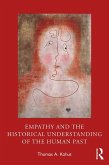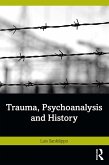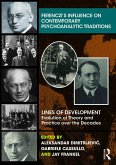Dieser Download kann aus rechtlichen Gründen nur mit Rechnungsadresse in A, B, BG, CY, CZ, D, DK, EW, E, FIN, F, GR, HR, H, IRL, I, LT, L, LR, M, NL, PL, P, R, S, SLO, SK ausgeliefert werden.
"Laura Sokolowsky has given us that precious thing - a history which illuminates the urgent stakes of our present. Detailing the socially engaged innovations that marked the Berlin Psychoanalytic Institute's first flowering during the Weimar years, but also tracking its painful compromises with a Nazi regime that burned Freud's books, this lucid work provides us with a reminder: to remain subversive, psychoanalysis must be guided not by state power but by the desire of Freud and Lacan. In an era of the neoliberalisation of health, Laura Sokolowsky's brilliantly evoked history could not be more timely." - Colin Wright, Associate Professor of Critical Theory, University of Nottingham









